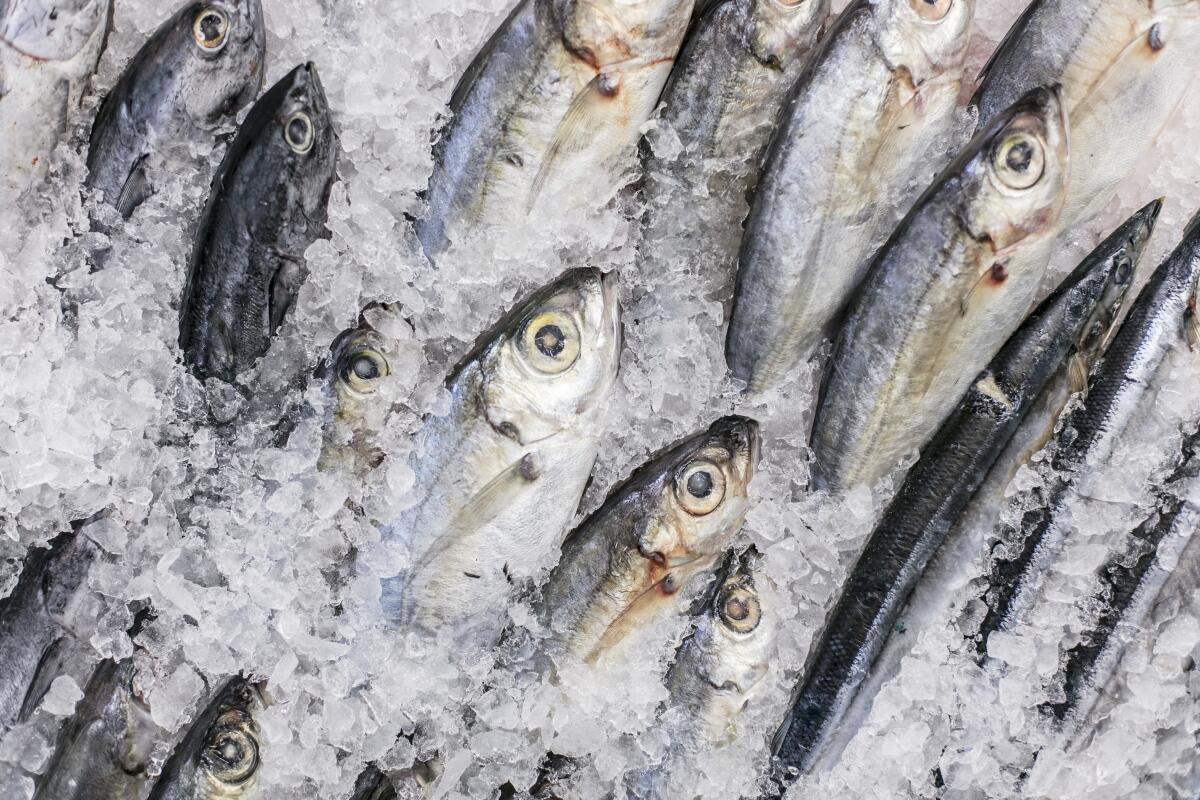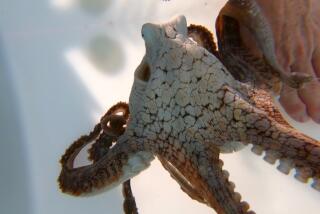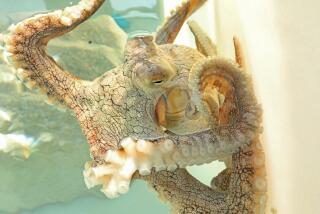Op-Ed: How Americans can get more safe, sustainable seafood on their plates

- Share via
There’s a culinary revolution happening in the United States. More than ever before, Americans expect their meals to not only be delicious, but sustainable and local too. They’re increasingly turning to seafood options as a nutritious and more environmentally friendly source of protein. While restaurants and markets that can meet this demand are reaping the benefits, more supply is needed.
Currently, up to 85% of American seafood is imported, and it is estimated that half of that is farmed — often in ways that may not live up to our health or environmental standards. Meanwhile, a 2021 poll showed that 70% of American seafood consumers are concerned about where their seafood comes from and nearly 90% of U.S. voters prioritize increasing regulations and setting high standards to ensure seafood is truly sustainable. Notably, this includes 92% of Democrats and 86% of Republicans. Leaders looking for bipartisan priorities need look no further than their next meal.
Part of the solution is to make more sustainable, homegrown aquaculture — the farming of seafood in U.S. waters — a reality. While some states permit seafood farming near shore, the U.S. needs comprehensive standards for farms more than three nautical miles offshore, in federal waters, to allow a sustainable industry to develop. Safely growing seafood in federal waters could help stabilize supply for chefs and consumers, drive job creation in coastal economies and the seafood supply chain and meet America’s growing demand for sustainably sourced, nutritious protein. We need to be growing a domestic seafood economy that includes both sustainable aquaculture and wild capture fisheries.
A new bill would take the first, responsible steps toward building a strong, sustainable aquaculture industry in the U.S.: the Science-based Equitable Aquaculture Food Act (SEAfood Act.) It was introduced last week in Congress by Rep. Alan Lowenthal (D-Long Beach.)
There are potential risks and unknown, unintended side effects of aquaculture that must be addressed. Equipment failures can lead to more pollution that endangers wildlife, and fish escapes could interfere with wild fisheries, upsetting delicate ecosystems that support existing livelihoods. Additionally, we must ensure that the food required for fish farms does not deplete other species critical to ocean health.
That’s why the SEAfood Act is so important. It would drive the studies necessary to ensure regulatory standards for aquaculture in offshore federal waters that limit the effects on marine ecosystems and protect coastal communities. It’s a thoughtful, necessary way to close knowledge gaps, set strong standards that inform future regulations and ensure that aquaculture in the U.S. grows within guidelines that are truly sustainable. Only such a science-backed approach can protect our oceans while also meeting consumer demand.
Congress has passed needed legislation like this before. When our wild fisheries were collapsing, the bipartisan Magnuson-Stevens Fishery Conservation and Management Act set a new standard for science-based policies and sustainable practices that helped save American fishing. With a new industry in offshore aquaculture, we can build on the successes of the U.S.’ $1.5-billion aquaculture farms that are already growing more than 90 million pounds of seafood such as oysters, clams and salmon every year. But offshore, aquaculture of fish comes with unique risks and challenges that we must understand before we move forward. The SEAfood Act would help us do that.
When sustainable offshore aquaculture thrives in U.S. waters, we will be less vulnerable to the kinds of supply chain shocks the coronavirus pandemic and the Russian invasion of Ukraine have caused. It also could boost the economy of coastal communities and improve equity by creating grants for education and career development programs at institutions serving Native Americans, Alaskan Natives, Native Hawaiians and other traditionally underserved constituencies.
Make no mistake: More aquaculture is coming. The global population is growing and with it comes the need for more protein. So U.S. lawmakers should pass the SEAfood Act and invest in research now to help ensure that aquaculture in U.S. federal waters is done right from the start.
Eric Schwaab is senior vice president of people and nature at the Environmental Defense Fund. Mary Sue Milliken is an award-winning chef and small business owner. They are both founding members of the Coalition for Sustainable Aquaculture.
More to Read
A cure for the common opinion
Get thought-provoking perspectives with our weekly newsletter.
You may occasionally receive promotional content from the Los Angeles Times.










